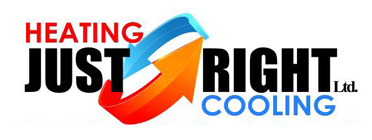Completing the search for your first home is an exhilarating experience. You’re probably trying to keep track of a dozen things or more about making the right choice. We believe that understanding your potential new HVAC system is essential. The property’s HVAC system represents a significant investment and source of potential long-term costs, illustrating why a detailed inspection should be a top priority for first-time homebuyers.
In this guide, we’ll share seven tips for learning everything you can about a home’s heating and cooling system. And if you want a deeper opinion from the pros, feel free to call Just Right Heating and Cooling. Our experienced team can help you compare your options with industry insights you won’t find elsewhere.
1. Which Kind of HVAC System Does the Home Use?
Start by identifying what type of HVAC system the home has. Furnaces generally last longer compared to air conditioners, and relatively new types of HVAC systems like heat pumps boast average life spans longer than ever. Knowing the make and specific model provides a clear understanding of how much it might cost in upkeep over time.
2. How Old Is the Current HVAC System?
It’s just as smart to learn how old the HVAC system is when you’re considering a new home. In general, HVAC systems last about 10-12 years. Knowing when it was installed helps you prepare for any needed servicing or when it might shut down for good. Older systems are at a higher risk of problems, so budgeting for a replacement unit could be necessary sooner than you thought.
3. Is the Warranty Active?
Don’t forget to look into whether the HVAC system is covered by a warranty. If it is, this can help with maintenance expenses. HVAC warranties typically include parts and labor, but the details in each policy will vary. Review any terms that aren’t familiar to make sure you fully understand your coverage and any possible out-of-pocket costs.
4. Does the System Have a Documented Maintenance History?
Don’t forget to check the maintenance history of the HVAC system, if the records are accessible. This service history can reveal if the repair needs are high or how much upkeep was provided. Ask about records for key tasks like filter changes, which is a positive sign indicating regularly scheduled tune-ups.
5. Are You Aware of the System’s Energy Efficiency Ratings?
Purchasing a home with a heating and cooling system with high energy efficiency isn’t just smart; it leads to more manageable utility bills and less of an impact on the environment. Locate the seasonal energy efficiency ratio (SEER) ratings for air conditioning along with the annual fuel utilization efficiency (AFUE) for furnaces. High SEER ratings mean more efficient cooling throughout the season, while strong AFUE ratings mean the fuel is efficiently converted into useable heat.
6. Have You Noticed Signs of Problems During Your Inspection?
Even without heating and cooling expertise, it’s still a good idea to examine the HVAC system yourself. Keep an eye out for any concerning items that haven’t been mentioned by the seller. This includes strange noises, unequal airflow and attempts to hide any serious damage.
7. Is an Experienced HVAC Technician Available to Help?
If you’re still hesitant to make an offer because of the overall state of the HVAC system, it’s beneficial to get a professional opinion from experienced HVAC professionals. They can spot things you may not know about, such as leaking coolant, bad electrical connections or inefficient ductwork.
A Call with Just Right Heating and Cooling Helps Take the Stress Out of Your Home-Buying Journey
Selecting your first home should be thrilling, and Just Right Heating and Cooling will do everything possible to ensure it stays that way. Connect with us at 513-392-4969. We can discuss how our HVAC services help make this process smoother, giving you what you need to step into your new home with confidence.


